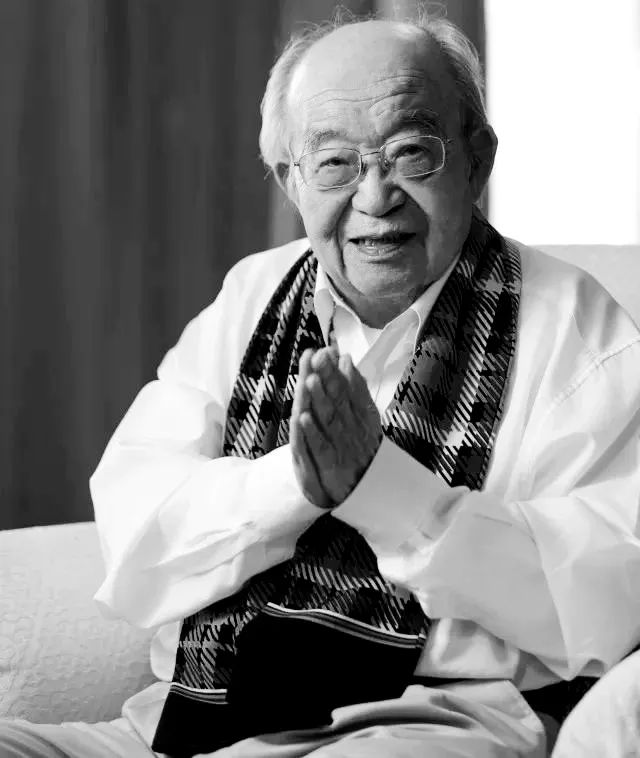Cheng Su Mei: Look at the encounter of philosophy and science from the theory of quantum theory
Author:Chinese school Time:2022.06.17
Source: "Chinese Social Sciences Digest" 2022 P54 -P55
Author unit: Institute of Philosophy of the Shanghai Academy of Social Sciences, the original "Where does science and philosophy meet? ——In the history of the development of quantum theory ", it is taken from" Social Science Front "in" Social Science Front "2022, Shao Xianman picked up

Although logical empiricals represented by Karnapu and others, although they created the first scientific philosophy of scientific philosophy during the period of quantum mechanics and laid the domain space for the later scientific philosophy, they were rejected and advocated observation and theory of theory and theory. In the claims, the sciences they understand are still science in the classic sense. They reject scientific discovery of the practice outside the scope of philosophy, causing philosophy to keep philosophy from the real scientific practice process. However, the separation of the research methods of scientific philosophers and its achievements and scientific practice does not mean that philosophy itself is far from science. In fact, contemporary science, whether it is the theoretical physics based on mathematical models or the laboratory science or engineering science that depends on technology, is intertwined with philosophy.
The discipline background of science and philosophy is far from each other
Science and philosophy did not have a clear line at first. For the time being, philosophy in ancient Greece was scientific or strived to become science. In the modern science of the Galileo era alone, for a long time, science and philosophy still still still It is collectively referred to as natural philosophy. For example, Newton's fame is named "Mathematics of Natural Philosophy".
Since the 19th century, scientific and philosophy's domain space and research purpose have shown a phenomenon of backwardness. When science is increasingly developing in the direction of engineering or laboratory science, philosophy is opposite, and it is more and more developed towards abstract and speculative direction. After the middle of the 19th century, the relatively comprehensive development of natural science not only deeply changed the development of economic and social development, established a scientific dominant position, but also completely independent from the philosophy of the philosophy of the mother, and even the philosophy represented by Russell The family advocates taking scientists as an example and pursuing the use of precision and determined logical methods to reinterpret the traditional philosophical issues, thus opening up the curtain of refusing to think of philosophy or metaphysics.
Although the philosophy of the 19th century was away from specific science because of its speculation, the ambitions that continued from natural philosophy as the mother of science still did not weaken. In other words, the philosophy of speculation is to look down on the development of science at the height of integration of various disciplines. In contrast, the logical empirical school that has emerged in the 20th century is launched in the way of imitation of scientific research or "scientific" methods. The Copenic philosophical revolution has given philosophy a cognitive function, instead becoming a scientific "servant", and pursuing science services.
The problem is that although the rise of logical empiricalism is subjectively to transform speculative philosophy, transcending unnecessary arguments between various philosophical systems, and allowing philosophy to embark on the road of scientific development of dialogue, but objectively, it will be the whole The specific process of scientific discovery excludes from the perspective of philosophical research. In the later development, when scientific philosophers clarified their positions based on the criticism of logical empirical views, this critical -the clue of the combination of constructing constructed the main line of development of scientific philosophy in the 20th century. But the problem is that whether it is a logical empiricalism that is keen to clarify the meaning of scientific propositions, or the new and old historical schools based on the history of science, or the scientific reality, anti -true theory, and non -real theory of various forms of scientific development process In general, the argument is mainly to strengthen the success of science, or to strive to defend the success of science, rather than effectively question the basis of scientific basis or the philosophical discussion of the issue of scientific cutting -edge issues.
Science and philosophy encounters in the forefront of scientific change
In the article "The Future of Philosophy" in the article "The Future of Philosophy", the American analysis philosopher Sel believes that although there is no clear dividing line between science and philosophy, they exist in methods, styles, and premise assumptions. There is a big difference. Philosophy issues have three characteristics that are not available in scientific issues: first, philosophy pays great attention to those questions that we have not found satisfactory system methods to answer; second, philosophical issues are often "dealing with phenomena" The "framework" issue, not to deal with specific individual questions; third, philosophical issues are typical conceptual issues, they are usually about the relationship between concepts and concepts and the world they are characterized. These three characteristics determine that as long as scientists can find the system to modify and explain the problem of philosophy, the problem is transformed into scientific issues.
However, Sel did not accept logical empiricalists that only positioned philosophy at the point of clarifying the meaning of propositions and had nothing to do with truth. In Sel's view, although philosophical issues will be continuously transformed into scientific issues, this does not mean that science will end philosophy or give up philosophy's cognitive functions, because the development of science will continue to promote philosophy Development, for example, the paradox produced by quantum mechanics and Gothic theorem raised many new philosophical problems, and these problems are problems that Greek philosophers cannot encounter. In principle, philosophy is the goal of seeking truth from science, and it will also make direct or indirect contributions to human knowledge. This view of Cears has also been supported by other analytical philosophers.
Although philosophers strive to rebuild the cognitive function of philosophy in the process of criticizing and transcending logical empiricalism, their explanation of the relationship between science and philosophy, in fact, still stands at the periphery of science to see the problem, and has not yet penetrated the scientific development of scientific development. Specific practice process. From the perspective of the theory of relativity and the theory of quantum theory, philosophy not only begins in the place where science stops, but more importantly, it also runs through every aspect of ideological ambiguity in the process of scientific discovery. The more famous case is that in 1935, Einstein and Rosen and Podolsky collaborated in the collaboration of EPR (the first letter of the first letter of the three authors), which was a physics. Article, it is better to be a philosophical article. Because the EPR demonstration is not based on the results of the actual experiment, but the argumentation and questioning of the theoretical completeness of the theoretical and the conceptual judgment of physical reality set by the author. This kind of argument and questioning is actually the externalization of the theoretical view that the author firmly believes in, which is equivalent to the question of whether the question of whether it is to meet the conceptual judgment to what kind of philosophical assumptions or theoretical views and even real views of the theory. Essence
This example is enough to show that when the philosophical belief is internalized into the basic literacy and conscious consciousness of physicists, the power of conceptual critical power will be reflected in the process of creating, judging, reviewing and accepting new theories. However, for physicists, once the philosophical beliefs that have been established, once they are solidified, they will become a stumbling block that further accepts new ideas.
Science and philosophy encounters in the intersection of scientific thought
In classic physics, the research objects are more intuitive. The philosophical assumptions contained in theory itself are basically consistent with daily thinking, but in the field of quantum, there are very different new situations.
First of all, the establishment of the concept of quantization means that the movement of micro -particles is no longer traceable like macro particle movement.
Secondly, the existence of these micro -particles is completely different from macro particles. They no longer have the objects of research there, quietly, but also prepared through the instrument. Some micro particles are still very unstable, and even a little vertical. In the past, its existence and characteristics must be derived by helping more indirect ways.
Third, classic physics is considered a concept system based on experience or facts as the criterion. However, in the development of contemporary quantum theory, physicists are increasingly used to construct the theory with abstract mathematics. Moreover, this dependence is getting higher and higher, and even some theories can not see that in the near future that may obtain experiments at all. Hope of inspection.
Finally, the main difference between quantum theory and classic physics is to abandon the concept of causality of decision theory.
The new characteristics of micro particles and quantum theory have the same characteristics of the same characteristics. In the micro -field, phenomena, facts, concepts, theories, measurement settings, etc. are no longer an independent unit separated from each other or separated from each other. Or the organic whole constructed together. This proposes what is real in the micro field and how to properly describe the sharp philosophical issues. For example, how to understand the real problems of theoretical entities such as photons and electronics have become the core of scientific reality and anti -real argument in the 20th century.
In this case, physicists need to form a new philosophical opinion while creating the theoretical system to spread their theoretical results. Bohr believes that physicists' expression of "physical reality" was not launched from the priority philosophy, but based on a direct requirement of experiments and measurement. The new features of quantum mechanics means that physicists need to modify the about Physical attitude. To this end, he took the lead in the two phenomena of the micro -particles and the uncertainty relationship between Heisenburg to summarize a more universal complementary principle to understand the quantum mechanics. Later The field of sociology and psychology. However, the principle of Bohr's complementarity is no longer based on the existence, but is based on the amount of observation. As a result, the task of forming physics is not directly exploring how the nature of nature is running, but discussing that we can do it for nature. Say something. Haisenburg will focus on language, thinking that our description and exchanges of experiments and measurement results can only rely on classic concepts and daily languages, because "nature is earlier than humans, but human beings are earlier than nature." Such philosophical opinions are unacceptable to old physicists represented by Einstein.
The development history of quantum theory shows that scientific research without philosophical thinking is blind; philosophical research without scientific foundation is empty. Although philosophy does not target science to discover scientific facts and create scientific theories, it does not mean that philosophy will not have any epistemology contribution to scientific research.
- END -
What is small clever and what is really smart?

Have you found it?Some people, when they first met, you think they are smart, clev...
Qiao Yu alumni go away, unforgettable golden song forever

New Media Center of the Propaganda Department of the Party CommitteeProduced by a ...